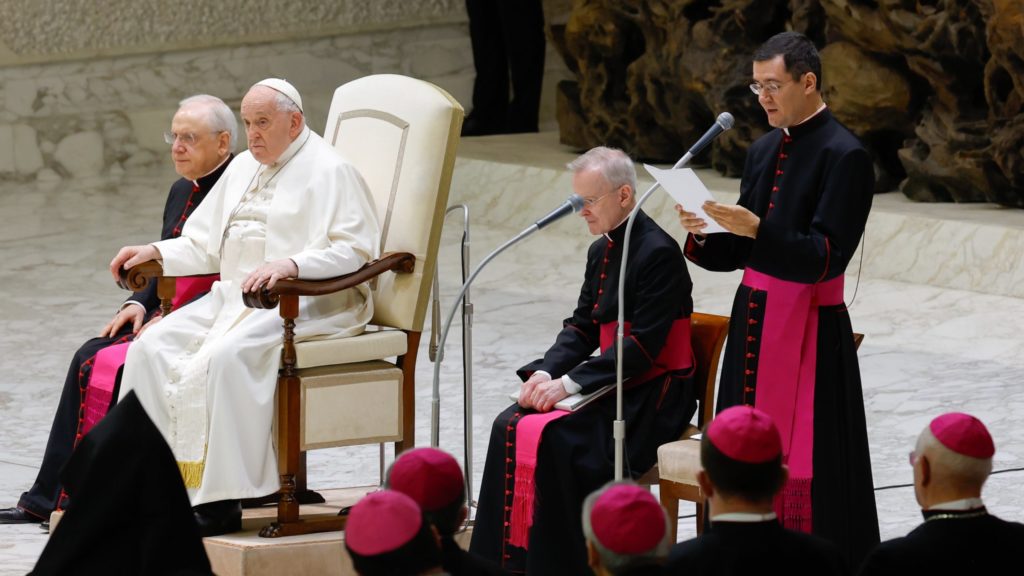ROME – After taking several days off due to what the Vatican described as a mild flu, Pope Francis on Wednesday resumed his normal schedule, but had an aide read his remarks during a public address and underwent tests at a Roman hospital after.
Speaking to attendees of his Feb. 28 Wednesday general audience, Pope Francis said “I am still a bit sick, and because of this I have asked Monsignor [Filippo] Ciampanelli to read the catechesis.”
Ciampanelli, an official of the Vatican’s Secretariat of State, read the pope’s speech, but Francis delivered the traditional greetings to different language groups himself.
The Vatican announced Saturday that Pope Francis had canceled his audiences that day because he was suffering from a “mild flu-like state.”
While Francis delivered his Sunday Angelus address as planned, he also canceled Monday’s commitments due to his ongoing cold, though the Vatican clarified that he had no fever. He had no publicly announced appointments on Tuesday.
Having aides read his public remarks when sick but well enough to maintain his schedule has become a habit for the pope, who in December had officials of the Secretariat of State read several public speeches while he was suffering from a respiratory infection that caused him to cancel a planned trip to Dubai for the COP28 climate summit.
Later on Wednesday the Vatican announced that Pope Francis after concluding his general audience went to the Fatebenefratelli Hospital on Rome’s Tiber Island for unspecified “diagnostic tests” that had not been previously announced. Italian media report that he left the facility around noon local time.
In Wednesday’s audience address, Pope Francis focused on the topic of envy, and afterward issued an appeal for prayer for all people “who are suffering war,” including the people of Ukraine and of Israel and Palestine.
He also urged prayers for the people of Haiti, “where crimes and kidnappings by armed gangs continue,” and acknowledged the 25th anniversary of the United Nations convention on anti-personnel mines, saying mines “continue to hit innocent civilians, especially children even many years after the end of hostilities.”

